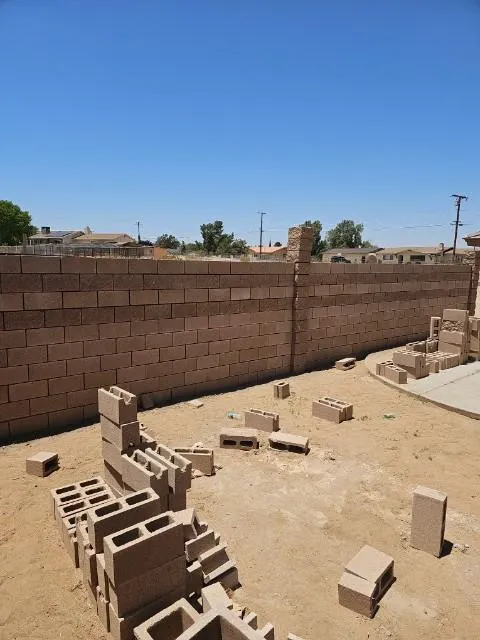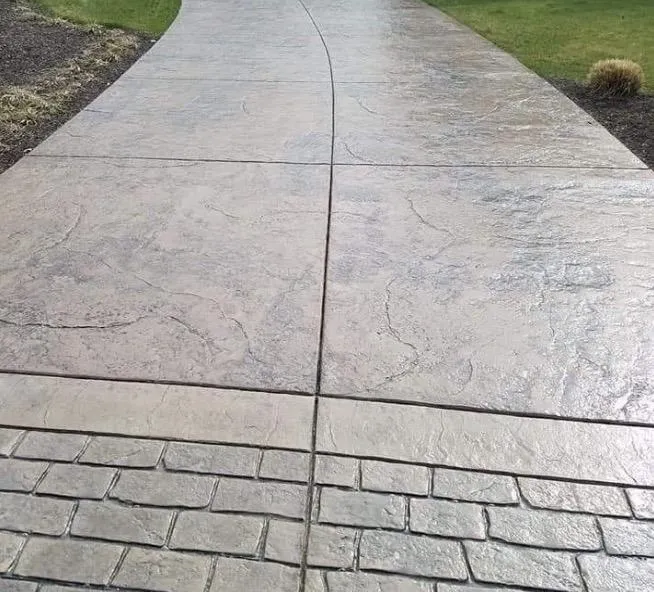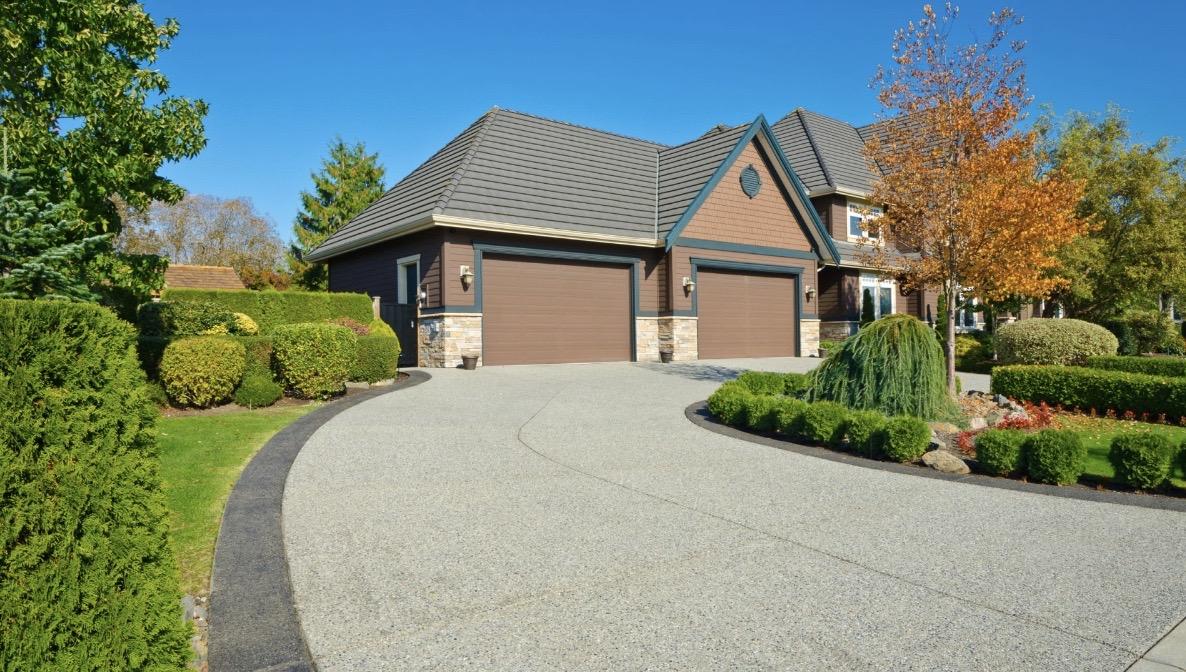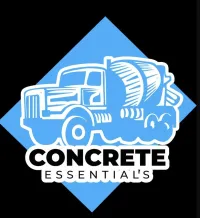Articles > Library

How to Accurately Calculate the Cost of Building a Block Wall: A Step-by-Step Guide
Building a block wall can be an excellent investment for enhancing property aesthetics, creating boundaries, or providing structural support. To ensure your project stays within budget, it’s essential to understand how to calculate the total cost accurately. This step-by-step guide will help you break down the expenses involved, using a bullet-point format for clarity and SEO optimization.
1. Determine Your Wall Specifications
Before calculating costs, define the specifics of your block wall project:
Height and Length:
Measure the height and length of the wall you want to build.
For example, a standard wall might be 6 feet high and 30 feet long.
Type of Wall:
Decide if you need a retaining wall, boundary wall, or decorative wall.
Each type may have different cost implications.
Block Type:
Choose between standard concrete blocks, decorative blocks, or reinforced blocks.
Specialty blocks will impact overall costs.
2. Calculate Material Costs
Concrete Blocks:
Standard Concrete Blocks:
Average cost: $1 - $3 per block.
For a 6-foot high wall, you may need approximately 10 blocks per linear foot.
Specialty Blocks:
Split-face or decorative blocks: $4 - $10 per block.
Determine if you need any specialty blocks for design or structural purposes.
Material Calculation Example:
Calculate the number of blocks needed:
Height x Length = Total Wall Area (e.g., 6 feet x 30 feet = 180 square feet).
Multiply by the number of blocks per square foot (e.g., 10 blocks per linear foot).
Total block cost:
Number of blocks x Cost per block (e.g., 180 blocks x $2 per block = $360).
Additional Materials:
Mortar:
Cost: $10 - $20 per bag.
You may need 1 bag for every 20 to 30 blocks.
Reinforcement:
Reinforced blocks or steel reinforcements add to the cost.
Cost: Varies based on the amount and type used.
3. Estimate Labor Costs
Contractor Rates:
Labor Cost per Square Foot:
Typical range: $10 - $30 per square foot.
Rates vary based on complexity and local labor market.
Complexity of Design:
Simple, straight walls are less expensive than curved or decorative walls.
Labor Cost Calculation Example:
Calculate the total square footage of the wall:
Height x Length (e.g., 6 feet x 30 feet = 180 square feet).
Total labor cost:
Square footage x Cost per square foot (e.g., 180 square feet x $20 per square foot = $3,600).
4. Account for Site Preparation and Foundation
Site Preparation:
Excavation and Leveling:
Cost: $500 - $1,500.
Depends on the terrain and site conditions.
Foundation Work:
Essential for wall stability.
Cost: $1,000 - $2,000.
Site Preparation and Foundation Calculation Example:
Add excavation and leveling cost to foundation cost (e.g., $1,000 + $1,500 = $2,500).
5. Include Additional Features and Finishes
Drainage Systems:
Cost:
$10 - $20 per linear foot.
Important for retaining walls to prevent water damage.
Decorative Finishes:
Stucco, Stone Veneers, or Paint:
Cost: $5 - $15 per square foot.
Choose finishes based on desired aesthetics and durability.
Additional Features Calculation Example:
Total cost for drainage and finishes:
Drainage (e.g., 30 feet x $15 per foot = $450).
Finishes (e.g., 180 square feet x $10 per square foot = $1,800).
6. Factor in Permits and Inspections
Permits:
Cost:
$100 - $500.
Required for walls exceeding certain heights or serving as retaining walls.
Inspections:
Cost:
$100 - $300.
Ensures compliance with local building codes.
Permit and Inspection Calculation Example:
Total permit and inspection cost (e.g., $300 for permits + $200 for inspections = $500).
7. Total Estimated Costs
Summarize Costs:
Material Costs:
Concrete blocks: $360.
Additional materials (e.g., mortar and reinforcement): $100.
Labor Costs:
$3,600.
Site Preparation and Foundation:
$2,500.
Additional Features and Finishes:
$2,250.
Permits and Inspections:
$500.
Total Estimated Cost:
Sum of all components (e.g., $360 + $100 + $3,600 + $2,500 + $2,250 + $500 = $8,310).
8. Tips for Managing Costs
Get Multiple Quotes:
Compare quotes from several contractors to ensure competitive pricing.
Opt for Standard Designs:
Avoid custom designs and specialty blocks to keep costs down.
Plan Ahead:
Schedule your project during the off-season for potential discounts.
DIY Where Possible:
Handle some tasks yourself to reduce labor costs.
Conclusion
Calculating the cost of building a block wall involves several factors, from materials and labor to site preparation and permits. By breaking down each component and considering additional features, you can create an accurate budget for your project. Use this guide to ensure your block wall construction is well-planned, cost-effective, and meets your aesthetic and functional needs.
More Articles


Contact Us
Service Hours
Social Media
Articles > Library

How to Accurately Calculate the Cost of Building a Block Wall: A Step-by-Step Guide
Building a block wall can be an excellent investment for enhancing property aesthetics, creating boundaries, or providing structural support. To ensure your project stays within budget, it’s essential to understand how to calculate the total cost accurately. This step-by-step guide will help you break down the expenses involved, using a bullet-point format for clarity and SEO optimization.
1. Determine Your Wall Specifications
Before calculating costs, define the specifics of your block wall project:
Height and Length:
Measure the height and length of the wall you want to build.
For example, a standard wall might be 6 feet high and 30 feet long.
Type of Wall:
Decide if you need a retaining wall, boundary wall, or decorative wall.
Each type may have different cost implications.
Block Type:
Choose between standard concrete blocks, decorative blocks, or reinforced blocks.
Specialty blocks will impact overall costs.
2. Calculate Material Costs
Concrete Blocks:
Standard Concrete Blocks:
Average cost: $1 - $3 per block.
For a 6-foot high wall, you may need approximately 10 blocks per linear foot.
Specialty Blocks:
Split-face or decorative blocks: $4 - $10 per block.
Determine if you need any specialty blocks for design or structural purposes.
Material Calculation Example:
Calculate the number of blocks needed:
Height x Length = Total Wall Area (e.g., 6 feet x 30 feet = 180 square feet).
Multiply by the number of blocks per square foot (e.g., 10 blocks per linear foot).
Total block cost:
Number of blocks x Cost per block (e.g., 180 blocks x $2 per block = $360).
Additional Materials:
Mortar:
Cost: $10 - $20 per bag.
You may need 1 bag for every 20 to 30 blocks.
Reinforcement:
Reinforced blocks or steel reinforcements add to the cost.
Cost: Varies based on the amount and type used.
3. Estimate Labor Costs
Contractor Rates:
Labor Cost per Square Foot:
Typical range: $10 - $30 per square foot.
Rates vary based on complexity and local labor market.
Complexity of Design:
Simple, straight walls are less expensive than curved or decorative walls.
Labor Cost Calculation Example:
Calculate the total square footage of the wall:
Height x Length (e.g., 6 feet x 30 feet = 180 square feet).
Total labor cost:
Square footage x Cost per square foot (e.g., 180 square feet x $20 per square foot = $3,600).
4. Account for Site Preparation and Foundation
Site Preparation:
Excavation and Leveling:
Cost: $500 - $1,500.
Depends on the terrain and site conditions.
Foundation Work:
Essential for wall stability.
Cost: $1,000 - $2,000.
Site Preparation and Foundation Calculation Example:
Add excavation and leveling cost to foundation cost (e.g., $1,000 + $1,500 = $2,500).
5. Include Additional Features and Finishes
Drainage Systems:
Cost:
$10 - $20 per linear foot.
Important for retaining walls to prevent water damage.
Decorative Finishes:
Stucco, Stone Veneers, or Paint:
Cost: $5 - $15 per square foot.
Choose finishes based on desired aesthetics and durability.
Additional Features Calculation Example:
Total cost for drainage and finishes:
Drainage (e.g., 30 feet x $15 per foot = $450).
Finishes (e.g., 180 square feet x $10 per square foot = $1,800).
6. Factor in Permits and Inspections
Permits:
Cost:
$100 - $500.
Required for walls exceeding certain heights or serving as retaining walls.
Inspections:
Cost:
$100 - $300.
Ensures compliance with local building codes.
Permit and Inspection Calculation Example:
Total permit and inspection cost (e.g., $300 for permits + $200 for inspections = $500).
7. Total Estimated Costs
Summarize Costs:
Material Costs:
Concrete blocks: $360.
Additional materials (e.g., mortar and reinforcement): $100.
Labor Costs:
$3,600.
Site Preparation and Foundation:
$2,500.
Additional Features and Finishes:
$2,250.
Permits and Inspections:
$500.
Total Estimated Cost:
Sum of all components (e.g., $360 + $100 + $3,600 + $2,500 + $2,250 + $500 = $8,310).
8. Tips for Managing Costs
Get Multiple Quotes:
Compare quotes from several contractors to ensure competitive pricing.
Opt for Standard Designs:
Avoid custom designs and specialty blocks to keep costs down.
Plan Ahead:
Schedule your project during the off-season for potential discounts.
DIY Where Possible:
Handle some tasks yourself to reduce labor costs.
Conclusion
Calculating the cost of building a block wall involves several factors, from materials and labor to site preparation and permits. By breaking down each component and considering additional features, you can create an accurate budget for your project. Use this guide to ensure your block wall construction is well-planned, cost-effective, and meets your aesthetic and functional needs.
More Articles

Contact Us
760-512-8091
16790 Danbury ave
Hesperia, CA, 92345
Service Hours
Mon-Fri: 8am-5pm
Sat-Sun: 8am-5pm
Social Media







